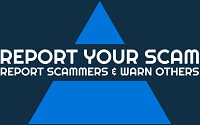Tollway scams typically involve fraudsters creating fake toll authorities or websites that appear to be legitimate, and tricking unsuspecting customers into paying tolls or fines that do not exist. These scams can take many forms, including phishing emails or text messages, fake toll booths or cameras, and even phone calls from people posing as toll authorities.
These scams work by preying on people’s fear and creating a sense of urgency to manipulate individuals into making a payment, often through a link provided in the message. Victims may provide personal information that scammers can use for identity theft or other fraudulent activities.
By being aware of the tricks and tactics used by these crooks and taking appropriate precautions, individuals can protect themselves from these types of fraudulent schemes.

Tollway Scams In-depth Explanation
Tollway scam is a type of fraud in which scammers mimic fake toll authorities or websites that mimic legitimate ones to fool people into paying fake polls or fines.
The scam typically works by a victim receiving an email, text message, or phone call claiming they have an overdue toll or fine, or insufficient funds in their toll account. The message may appear to be from a genuine toll authority or may contain branding logos that may make it appear legit. Email or the message usually contains a sense of urgency or fear, such as the threat of legal action or a fine if the payment is not made immediately.
The message may include a link to the website or a phone number to call to pay. The link may be malicious and can turn out to be dangerous as it may infect the computer with viruses. Victims will be asked to enter their personal and financial information, such as their name, address, toll account number, and credit card details which in the future will be used against them such as identity theft, financial fraud, or other illegal activities.
Get in touch with our affiliated Bitcoin Forensic Investigators at CNC Intelligence for free by filling out the form below.
Remember, legitimate toll authorities will never ask for your personal or financial information via email or SMS. They will direct you to log into your account directly through their website or an app. If you receive any suspicious message or an email or a phone call, it is best to independently verify the authenticity of such messages before taking any action.
What are the red flags to watch out for?
There are a lot of red flags that the tollway scam poses. Here are some of them to look out for:
- Urgency and threats: Scammers often use language that creates fear and urgency, but ultimately, it is nothing but a manipulative tactic used to make victims pay the amount immediately.
- Unsolicited messages: If you receive an email or a text message claiming that you owe a toll or fine, but you do not remember using the toll road or do not have an account with the tollway authority, it is likely a scam.
- Suspicious links or phone numbers: Be wary of any links or phone numbers provided in the messages, however genuine they might appear.
- Poor grammar or spelling: Legitimate toll authorities use professional and high-standard language. If the message is riddled with spelling or grammar errors, it is a warning sign.
- Request for personal or financial information: No legitimate toll authorities will ask for sensitive financial information, especially through emails and SMS. But if you receive such a message, it is best to avoid it.
By being aware of these red flags, you can protect yourself from falling victim to fake tollway authorities and save yourself from a lot of trouble.
How to protect yourself from Tollway Scam?
- Always keep track of your toll road usage and payments. This can help you identify any fraudulent activity on your account.
- Make sure to verify the authenticity of the email or the text message by checking your toll account on the legitimate website or directly contacting the tollway authority. Do not click the links or reply to the message until you are sure it is legitimate.
- Never provide your personal or financial information to strangers online, as this is very dangerous and causes a lot of harm.
- If you have a toll account, make sure you use a strong password.
Follow the above-mentioned steps to protect your identity and your hard-earned money.
Complaints We Received
On August 4, 2023, we received the following complaint:
I received a text message stating that I am overdue for a toll payment, which is incorrect.
Tollway Scam Conclusion
Tollway scams are becoming increasingly common, and it is important to be diligent to avoid falling victim to these fraudulent schemes. Remember to be always skeptical of unsolicited messages and never provide personal details.
By following simple guidelines and with a proactive approach, you can help ensure you do not fall victim to tollway scams.
If you are a victim, please let us know by commenting below.
If you have lost a significant amount of money to online scams, do not lose hope. We can help you recover your funds!
When you comment, your name, comment, and the timestamp will be public. We also store this data, which may be used for research or content creation in accordance with our Privacy Policy. By commenting, you consent to these terms.


